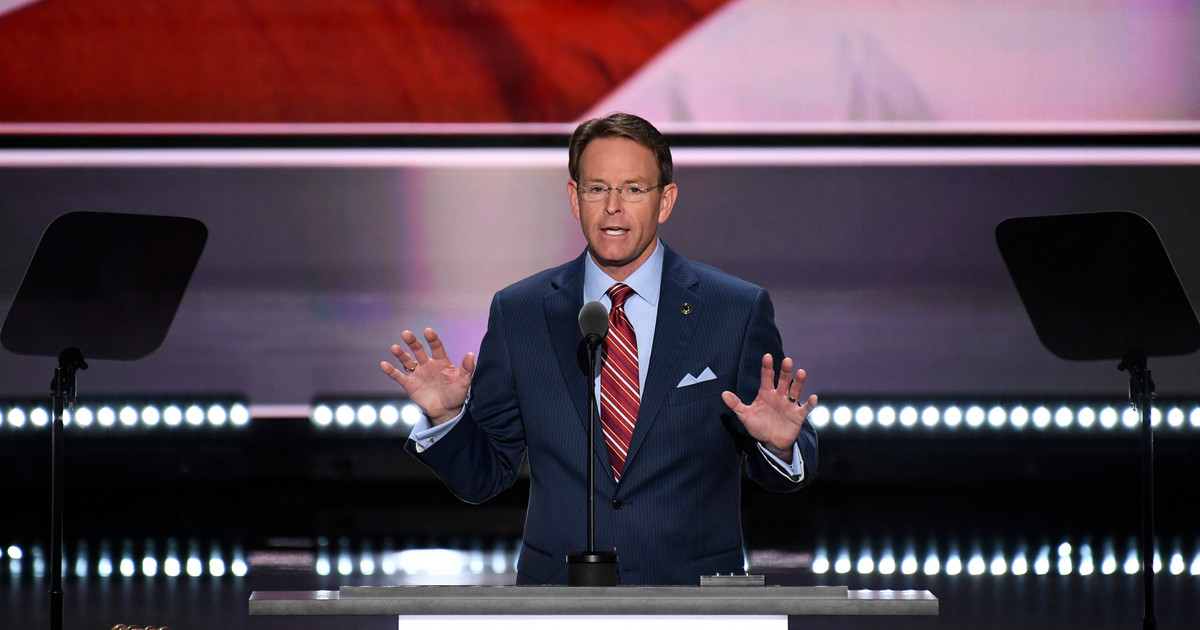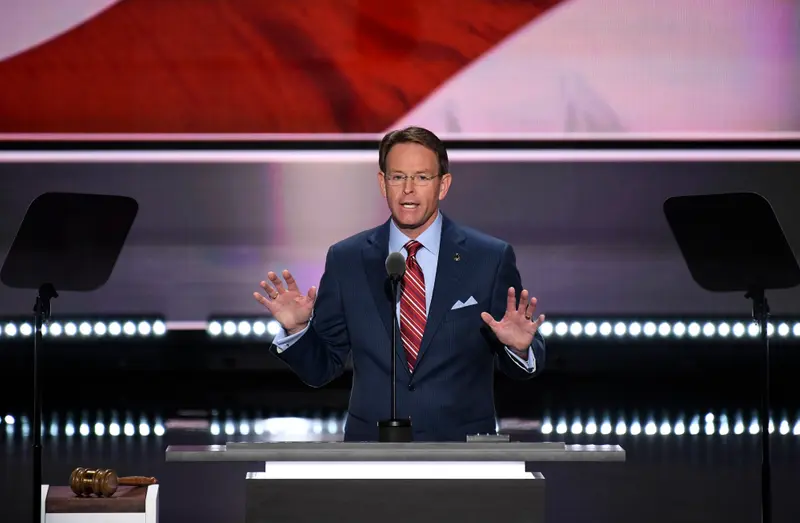
Right-Wing Think Tank Family Research Council Is Now a Church in Eyes of the IRS
The FRC, a staunch opponent of abortion and LGBTQ rights, joins a growing list of activist groups seeking church status, which allows organizations to shield themselves from financial scrutiny.
Right-Wing Think Tank Family Research Council Is Now a Church in Eyes of the IRS
The FRC, a staunch opponent of abortion and LGBTQ rights, joins a growing list of activist groups seeking church status, which allows organizations to shield themselves from financial scrutiny.

by Andrea Suozzo
July 11, 2022, 5 a.m. EDT
The Family Research Council’s multimillion-dollar headquarters sit on G Street in Washington, D.C., just steps from the U.S. Capitol and the White House, a spot ideally situated for its work as a right-wing policy think tank and political pressure group.
From its perch at the heart of the nation’s capital, the FRC has pushed for legislation banning gender-affirming surgery; filed amicus briefs supporting the overturning of Roe v. Wade; and advocated for religious exemptions to civil rights laws. Its longtime head, a former state lawmaker and ordained minister named Tony Perkins, claims credit for pushing the Republican platform rightward over the past two decades.
What is the FRC? Its website sums up the answer to this question in 63 words: “A nonprofit research and educational organization dedicated to articulating and advancing a family-centered philosophy of public life. In addition to providing policy research and analysis for the legislative, executive, and judicial branches of the federal government, FRC seeks to inform the news media, the academic community, business leaders, and the general public about family issues that affect the nation from a biblical worldview.”
In the eyes of the Internal Revenue Service, though, it is also a church, with Perkins as its religious leader.
According to documents obtained via the Freedom of Information Act and given to ProPublica, the FRC filed an application to change its status to an “association of churches,” a designation commonly used by groups with member churches like the Southern Baptist Convention, in March 2020. The agency approved the change a few months later.
The FRC is one of a growing list of activist groups to seek church status, a designation that comes with the ability for an organization to shield itself from financial scrutiny. Once the IRS blessed it as an association of churches, the FRC was no longer required to file a public tax return, known as a Form 990, revealing key staffer salaries, the names of board members and related organizations, large payments to independent contractors and grants the organization has made. Unlike with other charities, IRS investigators can’t initiate an audit on a church unless a high-level Treasury Department official has approved the investigation.
The FRC declined to make officials available for an interview or answer any questions for this story. Its former parent organization, Focus on the Family, changed its designation to become a church in 2016. In a statement, the organization said it made the switch largely out of concern for donor privacy, noting that many groups like it have made the same change. Many of them claim they operated in practice as churches or associations of churches all along.
Warren Cole Smith, president of the Christian transparency watchdog MinistryWatch, said he believes groups like these are seeking church status with the IRS for the protections it confers.
“I don’t believe that a lot of the organizations that have filed for the church exemption are in fact churches,” he said. “And I don’t think that they think that they are in fact churches.”
The IRS uses a list of 14 characteristics to determine if an organization is a church or an association of churches, though it notes that organizations need not meet all the specifications. The Family Research Council answered in the affirmative for 11 of those points, saying that it has an array of “partner churches” with a shared mission: “to hold all life as sacred, to see families flourish, and to promote religious freedom.” The group says there is no set process for a church to become one of the partners that make up its association, but it says partners (and the FRC’s employees) must affirm a statement of faith to do so. It claims there are nearly 40,000 churches in its association, made up of different creeds and beliefs — saying that this models the pattern of the “first Christian churches described in the New Testament of the Bible.”
Unlike the Southern Baptist Convention, whose website hosts a directory of more than 50,000 affiliated churches, the FRC’s site does not list these partners or mention the word “church” anywhere on its home page. The FRC’s application to become an association of churches didn’t include this list of partner churches, nor did it provide the names to ProPublica.
To the question of whether the organization performs baptisms, weddings and funerals, the FRC answered yes, but it said it left those duties to its partner churches. Did it have schools for religious instruction of the young? That, too, was the job of the partner churches.
The FRC says it does not have members but a congregation made up of its board of directors, employees, supporters and partner churches. Some of those partner churches, it says, do have members.
Does the organization hold regular chapel services? According to the FRC’s letter to the IRS, the answer is yes. It wrote that it holds services at its office building averaging more than 65 people. But when a ProPublica reporter called to inquire about service times, a staffer who answered the phone responded, “We don’t have church service.” Elsewhere in the form, it says that the employees make up those who attend its services.
Answers From the Family Research Council to the IRS’ Church Characteristics Questionnaire
The following are excerpts from a document obtained by ProPublica. Click the arrows to explore it.





The organization’s claim to be an association of churches is disingenuous, said Frederick Clarkson, who researches the Christian right at nonpartisan social justice think tank Political Research Associates.
“The FRC can say whatever bullshyt things they want to,” he said. “The IRS should recognize it as a bad argument.”
Three experts told ProPublica that the IRS is failing to use its full powers to determine who gets the special privileges afforded to churches. And when a group like the FRC appears to push the limits of what charities are allowed to do — particularly relating to their partisan political activity — the IRS doesn’t often step in to crack down. The IRS did not answer a list of detailed questions for this story or make anyone available for an interview.
David Cary Hart, an activist and writer who received the FRC’s reclassification documents via a Freedom of Information Act request, wrote a letter to the IRS questioning the decision, saying the approval “defies regulatory logic.”
When ProPublica relayed details of the FRC’s new church designation to Senate Finance Committee Chairman Sheldon Whitehouse, D-R.I., he decried the loss of transparency and lax IRS oversight. “It is far too easy for powerful special interests to hide their donors using webs of nonprofits,” he said in a statement. “Form 990 filings provide valuable, and often the only, insight into a tax-exempt organization’s income and spending. But lax enforcement at the IRS and DOJ encourage more game-playing, which leaves the door wide open for enterprising dark-money schemes to exploit the system further.”

 Not surprising. That being said more and more Generations are going to church less, and they see Megachurches as money laundering. Gen Z and further ones are going to be more Anti-Church, so when it comes time to filling up Justice seats and laws in the future, you'll have these types of laws revoked since you got these Conservative organizations using the Religion loophole.
Not surprising. That being said more and more Generations are going to church less, and they see Megachurches as money laundering. Gen Z and further ones are going to be more Anti-Church, so when it comes time to filling up Justice seats and laws in the future, you'll have these types of laws revoked since you got these Conservative organizations using the Religion loophole.